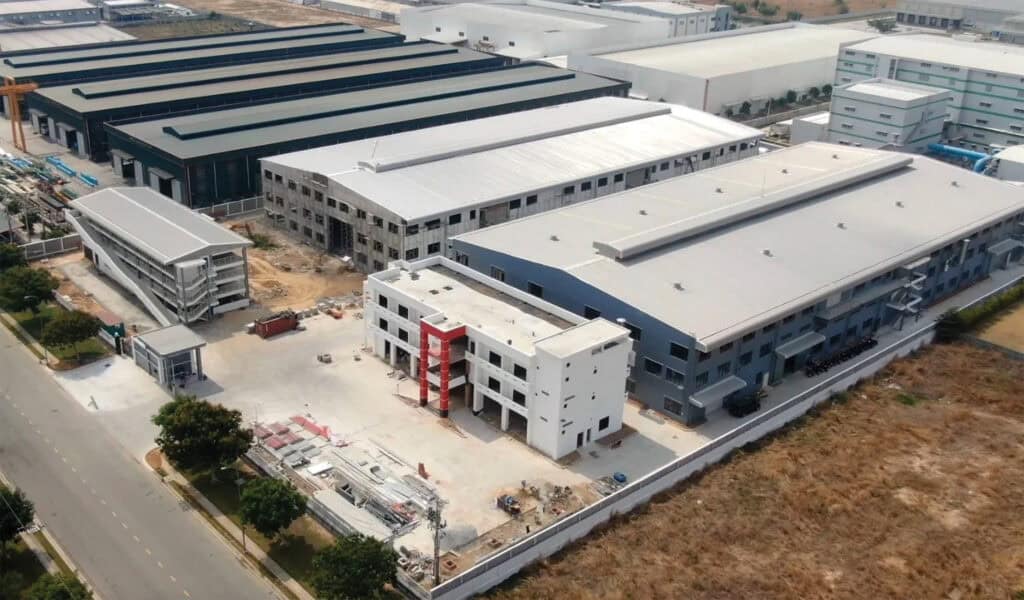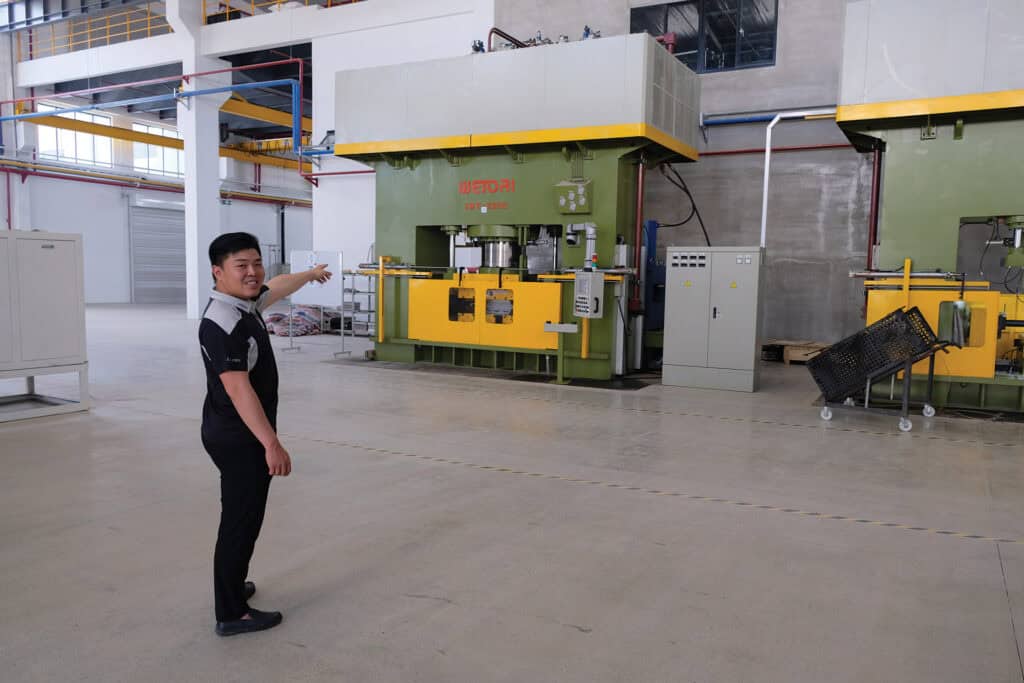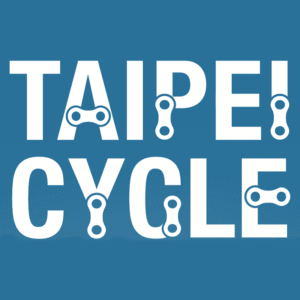With a focus on ESG initiatives and efficient in-house processes, A-Forge is ready to support the industry’s shift toward sustainable and integrated designs. The Show Daily was on-site in Vietnam to witness how the company is revolutionizing aluminum frame manufacturing for modern e-bikes.

The rise of e-bikes has had a profound impact on how aluminum bicycle frames are being built. Rather than welding a set of round tubes together, modern e-bike frames feature a selection of hydroformed, forged and cast parts – dropouts for thru-axles, boxy downtubes that house in-tube batteries or seat tubes with an integrated mounting plate for a mid-drive motor and an interface to fit the downtube.
One company that has been specializing in all sorts of aluminum processing to supply frame builders is A-Forge, founded in 1993 by George Chang. When Chang got an opportunity to ride a Swiss-made Flyer e-bike for the first time, he immediately realized the potential impact of electric assistance drives on cycling and the bicycle industry.
Why A-Forge moved to Vietnam
A-Forge started to supply big players such as Giant and Merida. As e-bikes became more common and brands pushed for more integration, A-Forge saw its annual turnover grow by 20 percent year-on-year. In a bid to produce close to its customers the company built no less than four factories in China. But by 2015, there were first signs of pending trade conflicts between China and the United States and the EU as key markets for quality bicycles and e-bikes in particular.

Since Vietnam had just seen anti-dumping tariffs on its bicycle industry lifted by the EU and had signed a favorable trade agreement with the United States, George Chang looked for possible locations in Binh Duong province and bought a plot of land measuring 24,000 m2 in the Vietnam Singapore Industrial Park IIA.
Stricter quality controls and reduced lead times
During our The Show Daily visit in March 2024, the new factory was still under construction, with one of the two large halls already finished and an impressive array of machinery ranging from simple tube benders and hydraulic presses to cold and hot forging lines, CNC lathes, 1200-tons hydroforming presses and tapering and butting stations getting installed.
As one of the sons of company founder George Chang, A-Forge Vietnam’s general manager Kenith Chang, has been in charge of setting up this factory, explaining: “By performing as many steps as possible in-house, we can apply stricter quality controls at each and every step, and reduce lead times as well.”
A-Forge and ESG
Following a major trend within the bicycle industry, A-Forge also cares about ESG matters and how to shrink the eco-footprint of its production in Vietnam. “We have a system to reuse wastewater, and the well-insulated roofs have been built strong enough to install solar panels. We also train employees to perform different tasks within the factory, so their work will be less monotonous. Robots are mainly used for efficiency and consistency reasons”, said Chang.
More news and updates from The Show Daily team
- New TA5 Standard: A Thru-Axle For the Masses
- Velo & SRAM: Uniting to Advance Sustainability
- AI in the Bicycle Industry: Pedaling into the AI Age
- Delta Electronics Touts the Total Solution
- Closing report: Taipei Cycle Show


